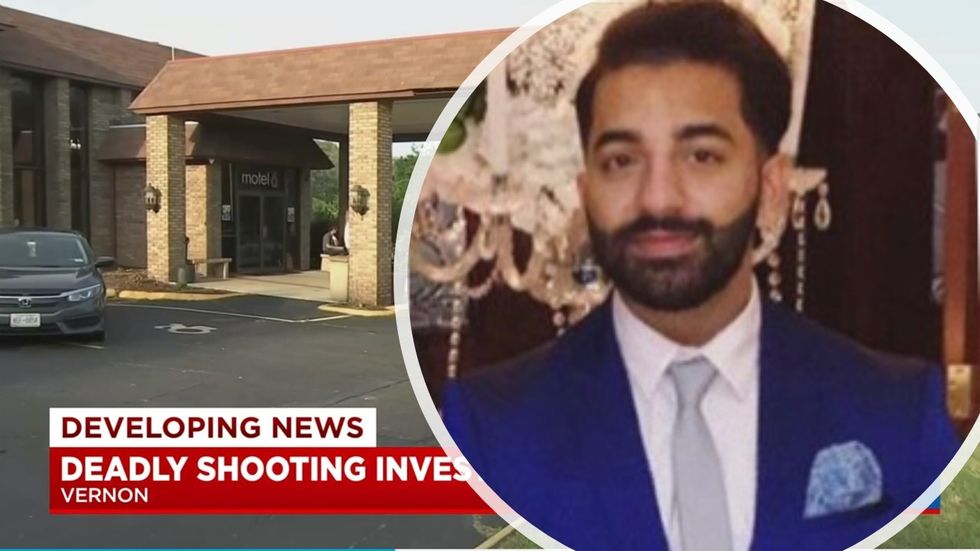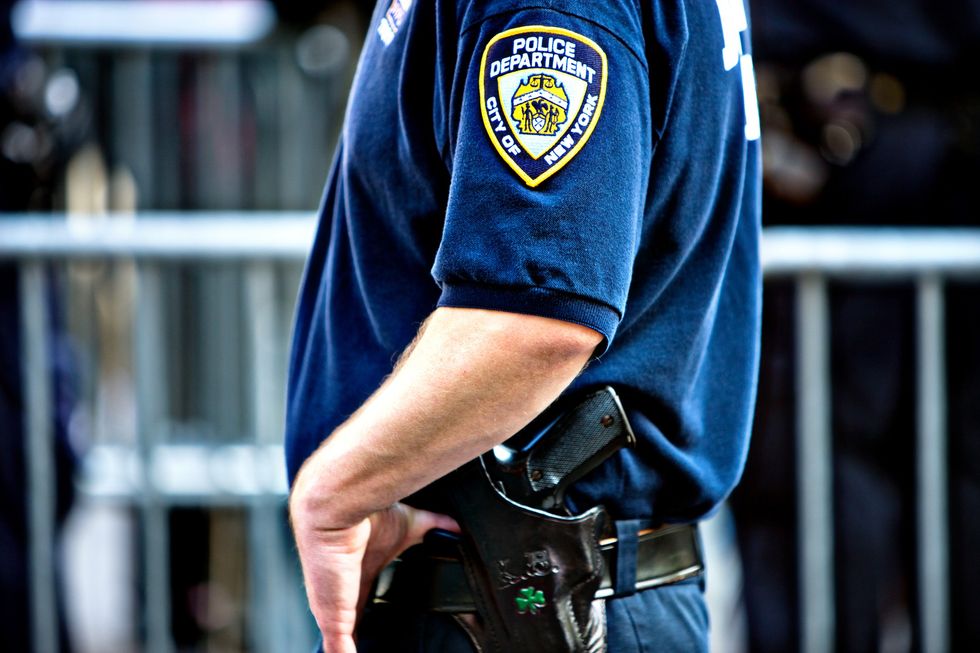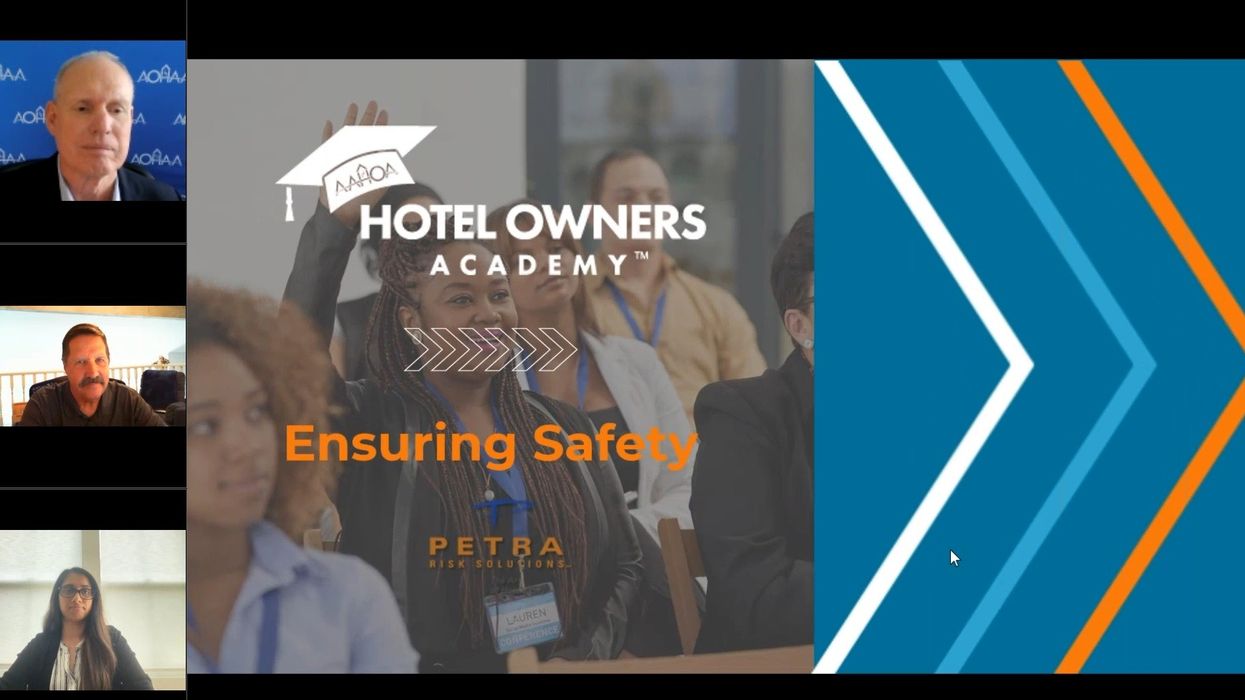Yogesh Patel, Zeshan Chaudhry, Usha Patel, Dilip Patel and Hemant Shantilal Mistry; all were killed on duty at their own hotels. In response, AAHOA is providing instructions in a webinar on how to protect hoteliers' belongings and lives.
The death of Oklahoma City hotelier Mistry on June 23 following an assault by an aggressive guest in his motel parking lot, is the most recent case of Asian American hoteliers being killed in conflicts with guests. The incident sparked an industry debate, emphasizing that hoteliers must now recognize the need to protect themselves, understanding both their rights as entrepreneurs and their duties to society.
Some guests believe their payment gives them license to disregard basic etiquette, leading to increased anti-social behavior and vandalism, according to experts participating in AAHOA’s webinar, “Essential Training for Hotel Owners: Managing Guest Misconduct and Ensuring Safety,” held on July 17. The webinar provided insights on safely handling confrontational issues in daily operations.
The session, hosted by Ralph Thiergart, AAHOA’s vice president of education, featured Todd Seiders from Petra Risk Solutions and Pooja Mehta from DPA Attorneys at Law. Seiders, a former Anaheim police officer with 25 years of experience, and Mehta, also chair of AAHOA's education committee, led the discussion.

“After receiving feedback from members and fellow hoteliers about concerns for staff and guest safety, AAHOA’s Education and Professional Development Committee quickly organized this webinar,” said Miraj Patel, AAHOA’s chairman. “To honor Hemant’s memory and raise awareness of best practices for ensuring hotel safety, this webinar provides a detailed look at your rights as a business owner and the legal tools available for managing tough situations.”
‘Hotels like homes’
Seiders and Mehta emphasized that hotels, like homes, are private properties, and the same rules apply.
“Hotels are like your homes,” Seiders said. “You have full control over who stays and under what conditions. House rules like no cooking, loud music, pets or smoking are enforceable. If guests don’t follow these rules, you can ask them to leave. This extends to parking lots—know your property boundaries and manage them accordingly.”
Seiders, who joined Marriott International after a 25-year police career, stressed that private property rules override any guest arguments.
“If someone doesn’t comply with your rules, you have the right to ask them to leave, as it’s your private property,” he said. “The First Amendment doesn’t apply on private property. You only have the rights the owner allows. For example, you can’t protest or distribute literature without permission. If someone uses offensive language or causes a disturbance, the owner can ask them to stop or leave.”
Mehta, DPA Attorneys’ managing partner, recommended that hotel owners prominently post house rules and keep them general to cover a wide range of situations.
“Instead of specifying every possible violation, you could simply state that any disturbance is a violation of house rules. Effectively communicating house rules provides a basis for actions like enforcing trespassing procedures if necessary,” she said.
Seiders, now serving as CLSD at Petra Risk Solutions—a national hotel insurance brokerage covering about 4,000 hotels across all 50 states—emphasized the importance of confidently enforcing property rights.
Preparedness is confidence

Pre-COVID, police responded quickly, explained options, and made arrests if necessary. Post-COVID, due to anti-police sentiments and progressive politics, police are often understaffed and slower to respond. Hoteliers must now be prepared to handle bad guest behavior and persuade the police to act when they arrive.
According to Seiders, confidence comes from preparation.
“Threatening or using violence in public is illegal in all states,” he said. “Be assertive with parties and bad behavior. For large, noisy gatherings, move them to a common area like the lobby to minimize disturbance. Don’t worry about negative social media reviews; address problems directly and respond factually. Prioritize safety and enforce house rules firmly. Once aware of an unsafe condition, you must act to provide a safe environment,” he said.
If someone looks out of place or has been loitering, greet them warmly and ask if they are a guest. Engage them with friendly questions to find out why they are there. If they are not a guest, inform them it is private property and ask them to leave, using phrases like "agent for the owner" to convey authority.
“The key is confidence,” Seiders said. “Be assertive and clear about the law, your rights as a business operator, trespassing on private property, and the right to refuse service. If they don't cooperate, take action: lock them out, get employees to evict them, or call the police.”
Seiders said hoteliers need to give themselves space to respond if there's a problem. And, they should be firm.
“Stand by what you say with authority and hope they back down. Bullies thrive when people allow them to,” he said. “Push back verbally, assert your authority, and they usually back down.”
‘Guests don't set your rules’

Guests cannot dictate how you run your business, Seiders said. He advised being firm and clear, but polite when asking guests to cease behaviour that violates the rules. If someone starts recording, stop and clearly state the issue.
“For example, say ‘We’ve received complaints about the music. Please turn it down. Can you do that?’” Seiders said. “If they refuse or argue, repeat the request up to three times. If they still don’t comply, ask them to leave within 10 minutes, or you'll call the police. This approach, focusing on clear communication and setting boundaries, helps maintain control and appears reasonable on video. If you prefer not to be filmed, you can ask them to put away the camera.”
Hotel staff also have the right to record in public spaces.
“If your hotel has security cameras with audio recording, use them to capture incidents for later review, which can be useful if legal matters arise,” Seiders said.
Mehta suggested posting signs in the lobby and around the property stating that surveillance is in use.
“This can act as a deterrent and ensure guests are aware they’re being recorded.
Such tactics can create a sense of intimidation and encourage them to be more mindful of their behavior,” she said.
Record trespassers

If a homeless person or unauthorized guest repeatedly trespasses, clearly inform them they are banned from the property and document each incident meticulously, Seiders said.
“Document the exact date, time and the employee who issued the warning,” he said. “A photo of the trespasser can also be useful. Keep a trespassing form with incident details. This helps build your case if law enforcement needs to be involved and is useful for tracking repeat offenders.”
When the police arrive, be clear and specific about your needs.
Instead of vague requests like “Can you talk to the person in room 302?” Seiders said to say directly, “I need the person in room 302 removed from the property immediately. They are causing a disturbance and threatening guests and employees.”
Seiders said urban homelessness has risen since the pandemic leading to increased safety and confrontation concerns among employees.
“We explored tools for managing disruptive behavior, including pepper spray. While non-lethal, it can effectively deter threats and ensure safety. Its use requires a written policy or SOP and employee training, in line with OSHA regulations,” he said.
Seiders said hoteliers can find their state’s trespassing penal code section by searching online for “[state] trespassing penal code.”
“For theft, credit card fraud, or identity theft, every state has laws against defrauding innkeepers or theft of services,” he said.
Stay calm, keep distance
Distinguishing between aggression and violence is crucial.
“Violence varies by culture, affecting responses to aggression,” Seiders said. “As a hotel owner, balance assertiveness with calmness and maintain distance. Address issues firmly but without escalating.”
Seiders advised avoiding shouting, as it often escalates situations.
“Address issues calmly, and be prepared to retreat safely,” he said.
Seiders also noted that gently guiding someone out, even with light physical contact, is generally not considered assault or battery.
Know who can help you!

When de-escalation isn’t possible, knowing who can assist you is crucial for your safety, Seiders said, emphasizing the importance of building an active relationship with local police.
“Personal relationships with local officers or their supervisors are invaluable. Some may even share their personal contact information, which is incredibly useful for quick responses,” he said, adding that many local police departments have crime prevention divisions.
“Invite these officers for a property walk, even if you’re familiar with basic security measures,” he said, citing it as another opportunity to build relationships and possibly obtain their contact information. “Offering a clean, accessible restroom and 24/7 access for officers builds goodwill. Invite officers for coffee or breaks and provide dedicated parking for police vehicles. This deters criminals and gives guests the impression of a well-patrolled hotel.”
However, if you need to call the police, Seiders said, ensure it’s truly a last resort after other attempts to resolve the situation.
“When calling, be clear and urgent about the issue. Communicate the seriousness—such as disturbances or threats of violence—to ensure your call is prioritized appropriately,” he said. “Calls are often categorized by urgency. Convey the urgency accurately to ensure a swift police response.”






